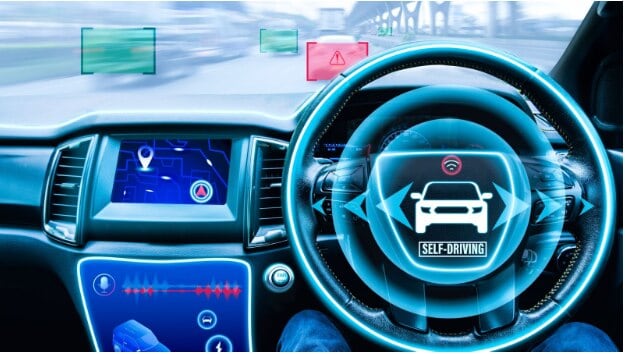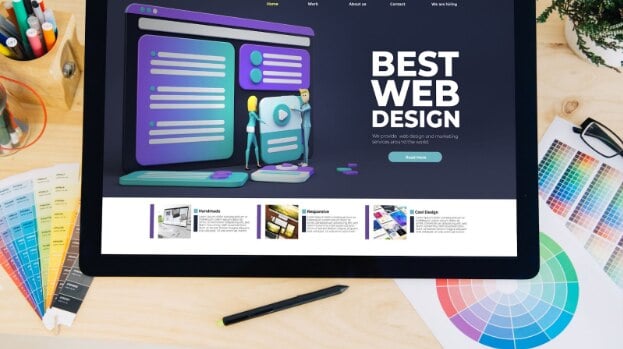In the prevailing era of digital dominance, the automotive industry too is no stranger to the disruptive influence of technology. Customers, especially the ones who are technologically savvy, are increasingly favoring digital experiences over traditional ones when it comes to buying a car. It is not about mere physical possession anymore; it is about the overall ride experience. As a long-time Digital Transformation Consultant, I am fascinated and thrilled by these changes.
Automobile Buying: A Digital Transformation
In my experience, digital transformation is not just about adoption of technology; it’s more about changing how we think and how we behave. Especially, in the automotive industry, where augmented reality (AR), virtual reality (VR), 360-degree views, and various standardizations have not only made digital car buying possible but have accelerated the overall digital transformation. Auto manufacturers are taking a leaf out of the book of retail businesses, crafting a customer experience journey that is seamless and offers personalized experiences. Few manufacturers, like Tesla and Mercedes-Benz, have adopted this direct-to-consumer e-commerce approach, giving themselves a competitive edge in the market.
A Case Study: Mercedes-Benz
Mercedes-Benz, for example, invested in a Microsoft Azure cloud solution coupled with Power BI and Cortana Intelligence. The result? The Brazilian branches of the company could provide accurate proposals to their clients and proactive engagement with customers using predictive analysis. Anecdotal evidence suggests that this shift has resulted in an overall improvement in customer satisfaction. The role of data analytics and the consequent behavioral shift in the organization are indeed admirable!
Changing Preferences: Possession to Ride Experience
It’s no longer about owning the vehicle; it’s about experiencing the ride. A survey by Accenture revealed that 48% of the respondents would consider giving up car ownership in favor of autonomous mobility solutions. Porsche, for instance, offers the ‘Porsche Passport’ service where customers pay a fixed monthly fee to access up to 22 different cars based on their needs. The focus is not on possession but on experience, a paradigm shift in consumer behavior!
Digital Adoption: Redefining Customer Experience
Now, this is where I am profoundly excited – digital adoption allows auto manufacturers to access vast pools of customer data. Companies can collect and connect millions of such touchpoints to visualize each customer’s journey. Companies like Porsche are offering IoT based servicing and car care. I firmly believe that technology’s role in transforming how we think about car ownership and customer experience is just beginning.
Electric Vehicles: The Game Changers
The rise of electric vehicles (EV) has marked a significant shift in how cars are bought. An EY Mobility Consumer Index (MCI) 2022 report highlights that this digital auto retail evolution is specifically being driven by EVs. A new wave of tech-enabled virtual dealerships is offering advanced experiential technologies, such as AR, VR, and the metaverse. Despite this, consumers still prefer physical interactions during their purchase process.
The Hybrid Approach: Digital and Physical
Buyers are looking for a digital-first experience that combines the convenience of online transactions with the reassurance of personal interaction. They want to gather information online but prefer a dealer to experience the car physically. It seems to me, as a digital transformation consultant, that a melding of digital and physical experiences is the key to customer satisfaction in the automotive industry.
Future Forward: The Era of Dealership Experience Centers
Dealership experience centers are the new rage! Imagine a world where you can perform all your buying tasks online with AR and VR enhanced brand experiences. These centers offer virtual test drives and even virtual factory tours – all without the need for holding physical stock on site, reducing costs and the amount of space required. This fascinating blend of technology and physical reality is, I believe, the new normal in the automotive industry.
Concluding Thoughts: The Future of the Digital Highway
Ultimately, the digital transformation in the automotive industry is a testament to the evolving consumer mindset. We are moving from a world where possession mattered to a world where experience is everything. Electric vehicles are reshaping not only the environment but also the way we think about mobility.
The digital highway, it appears, is replete with endless possibilities, much like the open road. As a Digital Transformation Consultant, I believe that embracing the digital wave is not just beneficial but inevitable for survival in the automotive industry. Remember, the future is not just about being digital; it is about being digitally transformed! Onwards and upwards on the digital highway!
As I always say, “Digitization is not a destination, but a journey!”







